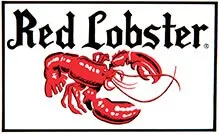29 Server Jobs in New York, NY Near You - March 2026
If you're looking for Server jobs in New York, you're in the right place. The city's vibrant restaurant scene is thriving, and OysterLink currently lists 29 Server positions near you across various dining establishments in the area.
New job listings are posted regularly, and employers are hiring immediately to fill essential roles such as Servers.
Recent Openings for Servers in New York, NY
There have been 2 new jobs posted in the last 10 days, with new opportunities added frequently to help you find the right Server job in New York quickly and easily.
Server Salary in New York, NY
From our current listings, the average salary for Servers in New York is $47,100 per year or $22.7 per hour, often supplemented by tips that can significantly increase total earnings.
Salaries for Server roles range between $33,300 per year and $59,300 per year, depending on experience, venue type, and shift hours.
| Lowest wage for Servers in New York | Average wage for Servers in New York | Highest wage for Servers in New York |
|---|---|---|
| $33,300 per year | $47,100 per year or $22.7 per hour | $59,300 per year |
Busy fine dining restaurants and high-volume urban eateries generally offer better earnings, boosted by generous tips and consistent shifts.
Servers in New York benefit from the city's robust hospitality industry, with many seasonal peaks driving higher income potential.
If you're considering Server jobs in New York, you can expect numerous opportunities across a diverse restaurant landscape with potential for growth.
How To Apply for Server Jobs in New York, NY
Applying for Server positions is straightforward through OysterLink. Each listing contains detailed info about pay, schedules, and employer requirements. You can refine your search by:
- Pay rate
- Experience level
- Full-time, part-time, or seasonal
- Shift availability
Employers in New York's restaurant sector are eager to hire Servers promptly, so applying early can improve your chances.
Simply upload your resume and apply directly to verified postings to get started.
Why Server Jobs Are in Demand in New York
New York's bustling hospitality industry drives strong demand for Servers year-round.
Here are typical areas and establishments where Servers are highly sought after in New York:
| Neighborhoods | Establishments |
|---|---|
| Manhattan | Fine dining restaurants |
| Brooklyn | Casual eateries and cafes |
| Queens | Family restaurants |
The city's diverse demographic and constant flow of visitors sustain the demand for skilled Servers in various dining environments.
Where Servers Are in Demand in New York
Employers currently seeking Servers in New York include:
- Coterie Senior Living - Hudson Yards
- Nutrition Management Services
What To Expect as a Server in New York
Typical responsibilities of Servers in New York include:
- Greeting and seating customers
- Taking orders accurately
- Serving food and beverages
- Handling payments and POS systems
They must provide excellent customer service and often multitask during busy shifts.
Working evenings, weekends, and holidays is common in this role, and employers value dependability and communication skills.
While some experience is preferred, many New York establishments offer training for entry-level Servers.
Server Job Benefits and Perks in New York
Many Server roles in New York come with benefits such as anniversary rewards, flexible schedule, and other benefits.
Employers aim to provide attractive compensation packages to retain skilled Servers in this competitive market.
Explore More Server Opportunities Near New York
New York is part of a wider metropolitan area with many opportunities. Nearby cities where you can find Server jobs include:
- Jersey City, NJ
- Newark, NJ
- White Plains, NY
Whether you're looking for Server jobs near you or want to explore surrounding areas, OysterLink has real-time listings ready for you.
Useful Resources for Servers in New York, NY
Here are some useful resources if you're a Server in New York:
| Resource | Description |
|---|---|
| City of New York Jobs Portal | Official job portal for city employment opportunities |
| NYC Official Employment Website | Job listings and career resources for NYC |
| State of New York Job Site | Employment opportunities within state agencies |



















